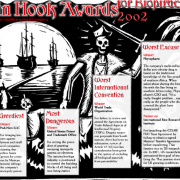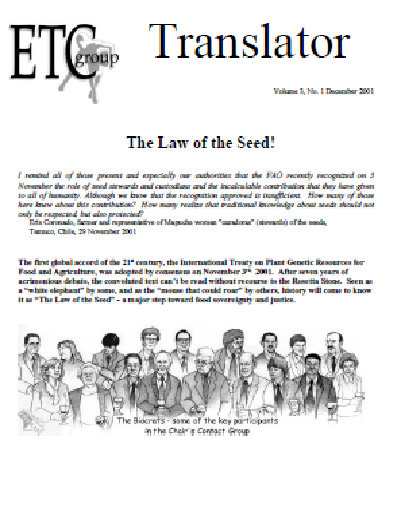Captain Hook Awards 2002
Submitted by ETC Staff on
The Coalition Against BioPiracy (CAB)* will present its highly un-coveted Captain Hook Awards -for infamous and outstanding achievements in biopiracy - at the Biodiversity Convention in The Hague, April 8-19 2002. The previous Captain Hook Awards ceremony was held almost two years ago at the Fifth meeting of the Biodiversity Convention in Nairobi. The Coalition emphasizes that the Captain Hook awards are made possible by the work and activities of many civil society and peoples' organizations around the globe that actively monitor and resist biopiracy. The cases cited and the analysis used in selecting the award winners are by no means limited to the work of the Coalition Against Biopiracy.






